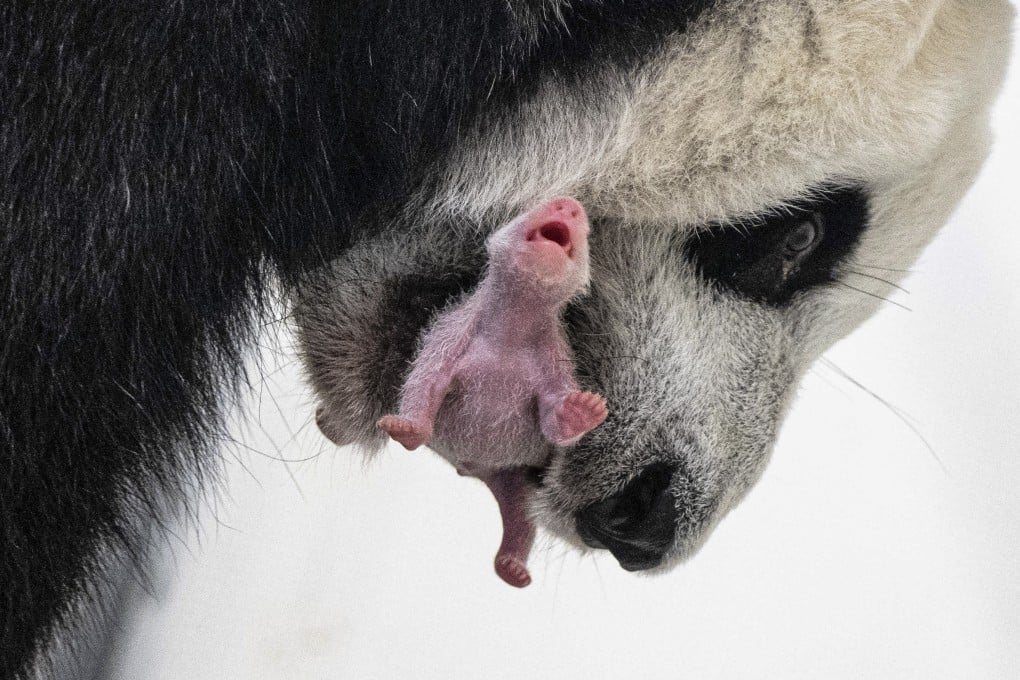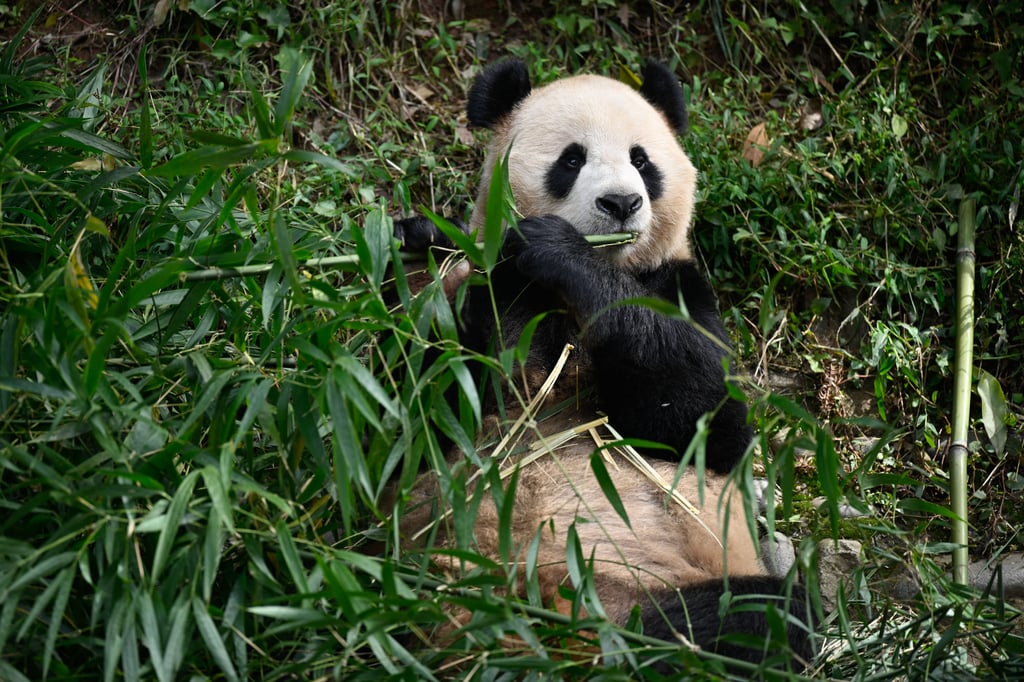Giant panda jet lag? Study finds captive animals struggle to adapt to new latitudes
- Inability to adapt to a zoo risks causing pandas physical and behavioural symptoms similar to human jet lag, metabolism issues or seasonal affective disorder
- Observers monitored 11 giant pandas via webcams at six zoos inside and outside pandas’ natural latitudinal range

The scientists also found that the abnormal and sexual behaviour of the panda subjects in the study shared similar rhythms, suggesting they might be frustrated they could not migrate or mate as they normally would during spring.
The team said zoos could take better care of the captive animals by matching the light, temperature and feeding schedules to their natural rhythms.
Animals synchronise their internal clocks to cues such as light cycles, temperature and seasonal food to sleep or eat at the right times of day and mate at the best time of year.
Keeping animals’ circadian clocks in check is key to maintaining captive populations, particularly those that are vulnerable in the wild, according to the researchers.

But zoo environments differ from the animals’ wild habitats and they may struggle to fully adapt. This could risk disrupting their bodies and behaviours similar to jet lag, metabolism issues or seasonal affective disorder in humans.
